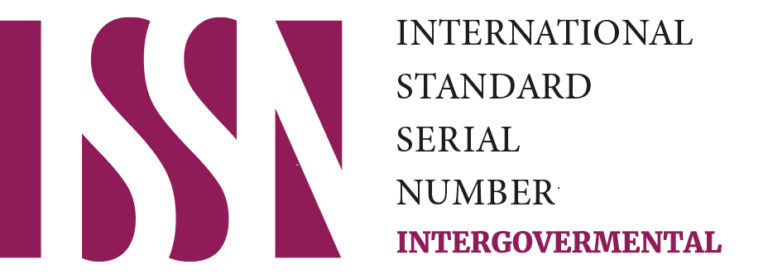ABSTRACT
For decades, the concept of international cooperation has been on a high; with the understanding that the closer nation-states are, the better they stand against problems as a team. With the United Nations and its affiliates at the fore, this cooperation has succeeded against varying global issues, not to mention piracy on the high seas, threats to international peace, and natural disasters such as in Haiti. However, this cooperation has been more of rhetoric than reality. The disagreements on climate change at Paris and the stalled international trade negotiations at Doha are some hurdles. Yet, the outbreak of the COVID-19 Pandemic has further aggravated this relationship. Thus, the virus has unmasked the flawed polities surrounding international cooperation, hence triggering a discussion by this article. This analysis foresees an upcoming new ‘UN’ in the European Union, following the latter’s robust action and reaction towards the Pandemic. Once an epicenter, the EU is unprecedentedly on the recovery path. Furthermore, this article also contributes to the on-going debate of an apparent leadership vacuum existing in the contemporary world, as created by leading powers’ behavior on matters that threaten humanity’s very existence, such as the COVID-19 Pandemic.
INTRODUCTION
After the two World Wars, or even before, the international community has clamored for unity to bolster international cooperation. The idea of collaboration has been to render nation-states initially the capacity to stand firm against any threat that would threaten peace, safety, and security of their very existence.
However, such cooperation seemed impossible through the countries’ direct partnership, but rather through an institutional approach such as the United Nations and others. In essence, these establishments would get the mandate to operate from the member states, as illustrated by the Charter of the U.N. F.Z. Giustiniani acknowledges that ‘international solidarity followed the increase in international cooperation, epitomized by the establishment of the brand-new institutionalized international system.’[i]
However, contrary to the thinking mentioned above, this collaboration has also gone through major evolutions, from looking at averting significant wars to solving non-wars issues such as transnational crimes such as terrorism, money laundering, and piracy on international waters, plus natural disasters and pandemics such as COVID-19. All of the above needed global togetherness, which has not been the case. Global cooperation has been severely strained by complex issues such as noncommittal of some members to climate change and failing international trade negotiations, thus testing interstate relationships. Therefore, as J. Meckling states, ‘complex global problems such as climate change have not been met with deep international cooperation.’[ii]
Fundamentally, the consequences will be particularly worse in developing countries, whose political and economic lifeline virtually depends on financial assistance from the developed world. Since the pandemic is still an on-going problem, it would be too early to determine the exact impact. A. Sumner, C. Hoy, and E. Ortiz-Juarez already warn of a ‘potential increase in poverty due to the damaging economic consequences.’[iii]
As it would be expected, the United Nations (U.N.) has worked relentlessly to promote global cooperation, as enshrined in the Charter ‘to achieve international cooperation in solving international problems of an economic, social, cultural, or humanitarian character.’[iv] Although sustainable cooperation is yet to be realized, time and again, the objective to bring countries together, as mentioned earlier, has always been high on the list of the U.N. At the same time, this cardinal objective, on the other hand, has been met with disagreements by the leading powers, particularly China and the United States (U.S.). For instance, the U.S. has accused China of bringing the COVID-19, yet Beijing has consistently denied the accusations. Whereas the origin of the virus is not the focus of this discussion, the analysis suggests the ‘flawed polities’ surrounding it. Moreover, as S. Shahtahmasebi describes, ‘the situation is not helped when the U.S. directly accuses and blames China for the virus.’[v]
With the ugly consequences emerging, it would be expected that countries find some agreement to defeat the common enemy, the virus. States have imposed bans on international travel, closed borders, global trade has come to a standstill. Such actions are unprecedented as S. K. Linka, M. Peirlinck, and F. Sahli Costabal note ‘for the first time in history, on March 17, 2020, the European Union closed all its external borders in an attempt to contain the spreading of the coronavirus 2019, COVID-19.’[vi]
Yet, member countries of the U.N. cannot find common ground to work together! Moreover, the short-term and long-term effects are yet to be comprehended fully. In the interim, amidst all these issues, the looming question that remains unanswered is whether international cooperation is still possible or it is all rhetoric. To address and contribute to the on-going debate about international cooperation and a leadership vacuum, this article uses the following parameters to discuss;
- The flawed polities that exist in international politics when it comes to non-war problems that threaten peace and integrity;
- The current dynamics and challenges surrounding international cooperation;
- The possible avenues that should be taken to achieve international cooperation, especially during times of disaster as the COVID-19.
DYNAMICS OF INTERNATIONAL COOPERATION
It is a commonplace that international cooperation might be difficult on a state-to-state basis bearing in mind the sovereignty issues while competing for the insatiable resources. As A. Omodele recognizes, ‘the extent of international cooperation has remained weak on so many fronts.’[vii]
Therefore, international organizations such as the U.N. would be a better tool or avenue to foster this cooperation; after all, they obtain their mandate from the member states. However, at times, and mostly in emergencies, member states have let down these organizations, for which they so fought so hard to establish and threaten their very existence, thus throwing the whole arrangement of global cooperation into dilemma. Notably, the U.S. was at the forefront of setting most of these organizations. Now, at the fore of criticizing them and threatening to withdraw from them is an unfortunate gesture. At the same time, Washington’s behavior is reflecting a looming power vacuum. For instance, L.O. Gostin, H.H. Koh, M. Williams, and M.A. Hamburg mention, ‘the U.S. administration officially notified U.N. Secretary-General António Guterres of its intention to withdraw from WHO membership.’[viii]
On the other hand, though seen as a direct competitor to Washington for leadership, China looks unwilling to take up the role. Yet, the two giants are directly or indirectly polarizing international politics and policies. E. Boz and L. Tesar submit that ‘policies motivated by national objectives can have far-reaching international consequences in a highly interconnected world.’[ix] It is clear that the leading countries’ policies towards global affairs are driven by domestic interests other than sustainable global cooperation! With such a worldview from the top powers, the power, mandate, and the very existence of international organizations’ future is flawed polities.
Additionally, as C.E. De Vries, S. Hobolt, and S. Walter have pointed out, ‘international institutions are increasingly being challenged by domestic opposition and nationalist political forces.’[x]
There is increasing demand globally for the disbandment of international organizations. There have been protests against the climate agreements across Europe, demonstrations against the unfair trade negotiations, and demonstrations have also happened across the globe against WHO for its unsatisfactory response towards the COVID-19. For example, as L.T. Almashhadan states, ‘the World Health Organization did not declare it a pandemic until March causing global health and economic crises.’[xi]
All the above are a clear manifestation of the failing international system, which cannot even keep the international community either in the know of what is going on or the very essence of the need for such cooperation. This responsibility goes back to the constituent governments in the member states. The outbreak of the COVID-19 has made matters worse, as the disease has shown that flawed policies do exist in the global system. First of all, countries closed their borders! Secondly, countries concealed information vital for the international community to learn and prepare themselves for deadly diseases.
Third, countries trade insults and war of words towards each other, particularly between the U.S. and China during the pandemic outbreak, with Washington, as C.T. Laurencin and A. McClinton recall, ‘controversially declaring it the “Chinese virus.’[xii] On the other hand, Beijing has mainly denied all allegations from the U.S., insisting the U.S. should concentrate on finding the medicine for its people. All the above manifest that international cooperation is more of rhetoric aimed at fulfilling individual political gains than a global good. These are signs of flawed polities!
However, the outbreak of the Pandemic has unmasked the ugly relationships that have been hitherto unknown to the international community. For instance, Washington has echoed its withdrawal from funding the WHO and all its global health projects. Secondly, the virus’s outbreak has escalated the already low relationship between the U.S. and China, and indeed with other allies such as Europe. Moreover, as M.M. Queiroz, D. Ivanov, A. Dolgui, and S.F. Wamba concede, ‘the coronavirus (COVID-19) outbreak shows that pandemics and epidemics can seriously wreak havoc.’[xiii]
BENEFITS OF INTERNATIONAL COOPERATION
Cooperation amongst states should include a powerful instrument that can strengthen, share, and accelerate political, economic, and social development within countries and across regions. Moreover, it should involve creating, adapting, transferring, and sharing knowledge and experiences to improve the societies, while also making the most of existing resources and capacities. In other words, countries’ interaction can permit nations to pursue a common goal or interest.
The European Union has been exemplary in this kind of set up from the political, economic, and social avenues, even though it has its difficulties. Led by Germany, France, and Italy, the E.U. has stood their feet to ensure the E.U. does not disintegrate, mainly from internal problems such as the conflicts in Eastern Europe have not all shaken the E.U. bloc. On the other hand, ticking by their Charter, the E.U., as K. Goniewicz, A. Khorram-Manesh, and A.J. Hertelendy acknowledge ‘plays a key role in coordinating the response to disasters in Europe and beyond.’[xiv]
On the other hand, somehow, this is not the case with the U.N., whose Charter has been violated on different occasions, with member countries deliberately ignoring their roles and responsibilities. The Chater is the basis of international law and agreements. It acts as the principal grounds upon which friendly relations, international cooperation, and coordination should be built, which is always not the case. F. Delerue argues that ‘international law, particularly the Charter of the United Nations, is the backbone of international relations and is crucial for maintaining international peace and security.’[xv] Hence, it has become exceedingly difficult for states to balance domestic interests and international obligations. These violations, unfortunately, are with impunity, carried out by big countries most of whom are permanent members of the U.N. For instance, as G. Nolte has noted, ‘the most important treaty of our time, the United Nations Charter, has not been openly called into question by States,’[xvi] whenever such violations take place.
Besides, international cooperation is an excellent avenue through which countries solve transboundary problems and would otherwise be complicated by a single government. In terms of global peace, states have combined to stop significant threats in a region such as Afganistan, the Middle East, or Africa. Working closely with UNSC, the international community has fought terrorism across areas. In Libya, the Council worked closely with the neighboring regions in North Africa and Europe and North Atlantic Treaty Organization (NATO) to oust Muammar Gaddafi. T. Biersteker argues, ‘global security and global cooperation take many forms and appear differently from different vantage points on the globe.’[xvii] However, this kind of solidarity is yet to be seen against the virus. Is international cooperation rhetoric, geopolitical, or entirely flawed polities!
Therefore, there is no doubt that international cooperation is essential, especially in the contemporary world, which has become so intertwined due to advancement in technology and globalization that has eased communication, movement, and other means of human interaction. The Pandemic has made calls for e-life apparent and inevitable to minimize social contact among societies to contain the virus’s spread. Moreover, daily life is becoming electronic, which involves e-buying, virtual offices, conferences, summits, and even academics, hence the ‘new normal.’ With this in mind, it becomes categorically evident that the demands for cooperation are genuine, real, and urgent, as M. Hirono summarises that ‘international cooperation is important in tackling global non-traditional security threats.’[xviii]
WHY INTERNATIONAL COOPERATION FAILS ?
It is worth noting that the international system lacks an independent or some sovereign authority that can make or enforce binding agreements as and when the need arises. M. Beeson and N. Watson openly confess that ‘since the election of Donald Trump, the prospect of a leadership vacuum, caused by American policies that seek to dismantle, weaken, or ignore various international institutions, has become an increasingly important issue.’[xix]
Given the above circumstantial or deliberate actions by Washington, it is also apparent that without such global leadership, the states tend to take advantage of this vacuum and do what they like. Moreover, international collaboration is faced by an array of hindrances, which are short-term and long term. The big players such as the U.S. and China keep themselves busy by protecting their domestic and geopolitical interests, trade interests and safeguard their survival in a world full of competition at the expense of the universal interests for which institutions such as the U.N. stands for. This kind of attitude leads states to keep vital information away from the global community, thus posing more danger in such emergencies. In the pandemic case, there was a lot of misinformation, which the WHO has fought desperately, as L.Y. Hsu, P.Y. Chia, and S. Vasoo acknowledge, ‘fight to stop false information about coronavirus from spreading.’[xx]
Secondly, Washington has persistently accused Beijing of keeping important information away from the international community, thus escalating the spread of the virus. As a result of the accusations and counter-accusations, J.J. Lee and J.P. Haupt argue that ‘Sino-American relations have worsened.’[xxi]
Thirdly, international organizations have been predominantly influenced by the power struggle of the big players such as the U.S., and China. These countries would play a pivotal role in promoting nation-states’ relationships, using their economic, political, and social superiority. Moreover, these countries can do this through the institutional arrangement using their veto powers and influence. However, all the theoretical calculations towards this cooperation, as H. Borchert and T. Karasik confess that ‘the current international order is fragile because the global leadership vacuum is widening, diverging concepts of sovereignty are colliding, the fabric of political power is loose.’[xxii]
Fourthly, there is a growing wave of nationalism among states, particularly in developed countries, reflecting resentment towards internationalism. Such counter-movements are detrimental to international cooperation and against international organizations and all such arrangements that promote global unity. Brexit is one popular movement, which has forced Britain out of the European Union (E.U.). When cooperation is such a crucial element of regional and global development and survival, L. Hooghe, T. Lenz, and G. Marks observe that ‘counter-movements of leftists and nationalists have been at the forefront in challenging the Legitimacy.’[xxiii]
Fifth, the geopolitical interests of the member states of the U.N. are another factor. This problem comes into play mostly, again from the big countries, whose power and influence shape the international community’s direction, thinking, and ambitions. For instance, the U.S. or Russia’s impact is mainly seen in Europe’s politics and The North Atlantic Treaty Organization (NATO). Such influence will go deep into international institutions’ operations, as seen in the works of WHO, WTO, U.N., and others. C.L. Davis and T. Pratt add that ‘powerful effect of geopolitics on multilateral institutions occurs through security linkage that brings economic and security interests together and membership becomes a bargaining chip for states to expand their geopolitical coalitions.’[xxiv]
Therefore, such behaviors lend the U.N. or other affiliated organizations vulnerable and sometimes unable to fulfill their mandate to the broader international community of nations. Moreover, some of these countries, such as the U.S., were at the forefront of crafting and establishing some of these organizations, which brings their very existence into jeopardy as D. Whineray observes that ‘the U.N. was created at the initiative of the U.S. after World War II. Washington provides the largest financial contribution to the U.N.’s overall budget.’[xxv] Given the U.S. position and interests in the U.N., it becomes apparent that by playing a ‘separatist’ role to the very institution Washington helped to establish, the future of such organizations are doomed.
Moreover, these actions further cripple international relationships and lead to a power vacuum, as mentioned earlier, when it matters most. The frustration from such behavior is reflected in the formation of the G77, or even Brazil, Russia, India, China, and South Africa (BRICS). The emergence of these groups is not by mistake but rather a result of the gaps that global institutionalism cannot fill. It is debatable whether or not the small states can impact international cooperation and collaboration, especially where the big countries are dominant. However, as A. Lupel and L. Mälksoo conclude, ‘commitment to the international rule of law is a common feature of small states’ foreign policies and rhetoric.’[xxvi]
Hence, unless something is crafted soon and fast, the formation of such arrangements that span all continents would sooner or later render the global institutions such as the U.N. useless, especially where it is so apparent that the latter serves the interests of a few states, and that those of the minority countries are often ignored.
RESTORE OR RETHINK OTHER AVENUES OF INTERNATIONAL COOPERATION?
The immediate remedy to international cooperation is the need for the U.N.’s leading member states to sit on a round table and commit to a common ground for them to operate. In essence, it is understandable that all member states are equal as far as the U.N. is concerned. But, time and again, this has been proved only rhetoric. X. Li, J. Du, and H. Long, however, also stress the need for ‘international cooperation among institutions to be strengthened.’[xxvii] This cooperation can foster sharing information, ideas, and other logistical support that would be unaffordable by a single state and forge a way forward for universal coordinated efforts to fight such emergencies such as the current Pandemic. M. Sy, N. O’Leary, S. Nagraj, and A. El-Awaisi argue that ‘during the pandemic, and there is inter-professional and sharing of ideas between different groups, allowing inter-professional and international collaborations.’[xxviii]
Secondly, such actions that leave a power vacuum create space for other organizations to take advantage of. The reluctance to take the lead on the international stage, especially in an emergency such as the COVID-19, has shown how other institutions are prepared and better positioned to handle emergencies. For instance, though once the epicenter of the virus has shown the unprecedented recovery plan unseen anywhere else on a regional basis, the European Union has led the exceptional recovery plan unseen anywhere else. I. Kashnitsky and J.M. Aburto recognize that ‘the first months of fighting the pandemic in Europe showed that the unprecedented interventions were mostly successful.’[xxix]
The member countries have shown solidarity, always sharing information and working together as a group of 27. The outstanding effort against the Pandemic is an indication to the world that together, no problem can go unsolved. As B. Bramanti, K.R. Dean, and L. Walløe observe, the virus’s outbreak ‘necessitated the development of adequate measures to prevent the introduction and spread of infectious diseases to Europe.’[xxx]
The E.U. could be the next ‘U.N.’ given its advanced and civilized structural and contextual understanding of international cooperation according to the way they have approached the COVID-19 Pandemic. E.U. member states’ communities have shown extraordinary support for the cause of their European governments, as societies elsewhere in the developed world such as the U.S. have gone to demonstrations and riots. Therefore, as seen in Europe, T. Bernauer, S. Mohrenberg, and V. Koubi argue that ‘public support for international cooperation is crucial to its viability and effectiveness.’[xxxi]
Although faced with problems such as those in Eastern Europe, whereas L. Aggestam and F. Bicchi describe as ‘growing disillusionment with the democratic backsliding in some of the new Eastern Members,’[xxxii] the E.U. has stood firm against such internal and external geopolitical influences. Secondly, the E.U. also has a strong foreign policy that can ease its international diplomatic relations with other countries, thus bolstering its global presence and influence. As K. Goniewicz, A. Khorram-Manesh, and A.J. Hertelendy stress, the E.U.’ plays a key role in coordinating the response to disasters in Europe and beyond.’[xxxiii]
The need to have robust, objective and meaningful cooperation is required; otherwise, the current talk and debate are just flawed polities that lead to disaster if not World War III, especially given the vulnerability of the international organizations such as the U.N. As noted earlier, and continued by V. Ladychenko, O. Melnychuk, and O.Y.J. Kanaryk, ‘international cooperation and the formation of joint approaches to solving global challenges are of paramount importance for sustainable development.’[xxxiv]
CONCLUSION
The outbreak of the Pandemic has unmasked the ugly picture of the international systems and cooperation. However, this virus has ushered in new players unknown before. The E.U. performance has shown policymakers, academia, and the international community how real collaboration, sharing of information, and that close interconnectedness can help countries overcome problems or emergencies swiftly. Once an epicenter of the virus, the E.U. is back on its track to recovery, economically, politically, and socially. The success story against the virus in the E.U. area is mainly attributable to the policies and procedures that are sound and robust.
On the other hand, the U.N. continues to struggle amidst the success story of the E.U. As discussed in the text above, it is clear that the current trend and systems, as dictated by the U.N. member states, are flawed. The outbreak of the Pandemic has also reflected that there is still a big problem in sharing information as, in such times, countries concentrate on their survival and within borders.
REFERENCES
[i] Flavia Zorzi Giustiniani, “International Cooperation and Solidarity in Disaster Response: A General Introduction,” in International Law in Disaster Scenarios (Springer, n.d.), 93–105.
[ii] Jonas Meckling, “Governing Renewables: Policy Feedback in a Global Energy Transition,” Environment and Planning C: Politics and Space 37, no. 2 (2019): 317–338.
[iii] Andy Sumner, Chris Hoy, and Eduardo Ortiz-Juarez, “Estimates of the Impact of COVID-19 on Global Poverty,” UNU-WIDER, April, 2020, 800–9.
[iv] “Charter of the United Nations,” August 10, 2015, https://www.un.org/en/charter-united-nations/index.html.
[v] Said Shahtahmasebi, “COVID-19 in a Social Context,” Dynamics of Human Health 7, no. 2 (2020).
[vi] Kevin Linka et al., “Outbreak Dynamics of COVID-19 in Europe and the Effect of Travel Restrictions,” Computer Methods in Biomechanics and Biomedical Engineering, 2020, 1–8.
[vii] Adeyemi Omodele, “The Dichotomy between International Relations and International Law in the Face of the Global COVID-19 Pandemic,” Nnamdi Azikiwe University Journal of International Law and Jurisprudence 11, no. 2 (2020): 61–72.
[viii] Lawrence O. Gostin et al., “US Withdrawal from WHO Is Unlawful and Threatens Global and US Health and Security,” The Lancet 396, no. 10247 (2020): 293–295.
[ix] Emine Boz and Linda Tesar, International Spillovers and Cooperation (Springer, 2020).
[x] Catherine E. De Vries, Sara Hobolt, and Stefanie Walter, “Politicizing International Cooperation: The Mass Public, Political Entrepreneurs and Political Opportunity Structures,” International Organization, 2020.
[xi] Laith Tariq Almashhadani, “Language from Praising to Criticism: A Pragmatic Perspective,” مجلة وادی النیل للدراسات والبحوث الإنسانیة والاجتماعیة والتربویه 27, no. 27-الجزء الثالث (2020): 721–736.
[xii] Cato T. Laurencin and Aneesah McClinton, “The COVID-19 Pandemic: A Call to Action to Identify and Address Racial and Ethnic Disparities,” Journal of Racial and Ethnic Health Disparities, 2020, 1–5.
[xiii] Maciel M. Queiroz et al., “Impacts of Epidemic Outbreaks on Supply Chains: Mapping a Research Agenda amid the COVID-19 Pandemic through a Structured Literature Review,” Annals of Operations Research, 2020, 1–38.
[xiv] Krzysztof Goniewicz et al., “Current Response and Management Decisions of the European Union to the COVID-19 Outbreak: A Review,” Sustainability 12, no. 9 (2020): 3838.
[xv] François Delerue, “International Cooperation on the International Law Applicable to Cyber Operations,” European Foreign Affairs Review 24, no. 2 (2019).
[xvi] Georg Nolte, “Before the UN Charter,” in Treaties and Their Practice (Brill Nijhoff, 2019), 31–57.
[xvii] Thomas Biersteker, “Global Perspectives on Security, Cooperation, International Institutions, and International Relations,” Global Perspectives 1, no. 1 (2020).
[xviii] Miwa Hirono, “Impact of China’s Decision-Making Processes on International Cooperation: Cases of Peacekeeping and Humanitarian Assistance/Disaster Relief,” Australian Journal of International Affairs 74, no. 1 (2020): 54–71.
[xix] Mark Beeson and Nathan Watson, “Is International Leadership Changing Hands or Disappearing? China and the USA in Comparative Perspective,” Asian Perspective 43, no. 2 (2019): 387–415.
[xx] Li Yang Hsu, Po Ying Chia, and Shawn Vasoo, “A Midpoint Perspective on the COVID-19 Pandemic,” Singapore Med J 61, no. 7 (2020): 381–383.
[xxi] Jenny J. Lee and John P. Haupt, “Scientific Collaboration on COVID-19 Amidst Geopolitical Tensions between the US and China,” 2020.
[xxii] Heiko Borchert and Theodore Karasik, “Flow Control: How New Geo-Economic Ambitions Reshape Globalization,” IndraStra Global 5, no. 2 (2019): 279360.
[xxiii] Liesbet Hooghe, Tobias Lenz, and Gary Marks, “Contested World Order: The Delegitimation of International Governance,” The Review of International Organizations 14, no. 4 (2019): 731–743.
[xxiv] Christina L. Davis and Tyler Pratt, “The Forces of Attraction: How Security Interests Shape Membership in Economic Institutions,” The Review of International Organizations, 2020, 1–27.
[xxv] David Whineray, “The United States’ Current and Future Relationship with the United Nations,” 2020.
[xxvi] Adam Lupel and Lauri Mälksoo, Necessary Voice: Small States, International Law, and the UN Security Council (International Peace Institute., 2019), 18.
[xxvii] Xingwei Li, Jianguo Du, and Hongyu Long, “Dynamic Analysis of International Green Behavior from the Perspective of the Mapping Knowledge Domain,” Environmental Science and Pollution Research 26, no. 6 (2019): 6087–6098.
[xxviii] Michael Sy et al., “Doing Interprofessional Research in the COVID-19 Era: A Discussion Paper,” Journal of Interprofessional Care, 2020, 1–7.
[xxix] Ilya Kashnitsky and José Manuel Aburto, “COVID-19 in Unequally Ageing European Regions,” World Development 136 (2020): 105170.
[xxx] Barbara Bramanti et al., “The Third Plague Pandemic in Europe,” Proceedings of the Royal Society B 286, no. 1901 (2019): 20182429.
[xxxi] Thomas Bernauer, Steffen Mohrenberg, and Vally Koubi, “Do Citizens Evaluate International Cooperation Based on Information about Procedural and Outcome Quality?,” The Review of International Organizations 15, no. 2 (2020): 505–529.
[xxxii] Lisbeth Aggestam and Federica Bicchi, “New Directions in EU Foreign Policy Governance: Cross-Loading, Leadership and Informal Groupings,” JCMS: Journal of Common Market Studies 57, no. 3 (2019): 515–532.
[xxxiii] Krzysztof Goniewicz et al., “Current Response and Management Decisions of the European Union to the COVID-19 Outbreak: A Review,” Sustainability 12, no. 9 (2020): 3838.
[xxxiv] Viktor Ladychenko, Olha Melnychuk, and Olena Yara Julia Kanaryk, “International Mechanism of the Environmental Information Access and Cooperation Framework for Climate Change Protection,” European Journal of Sustainable Development 8, no. 4 (2019): 131–131.






